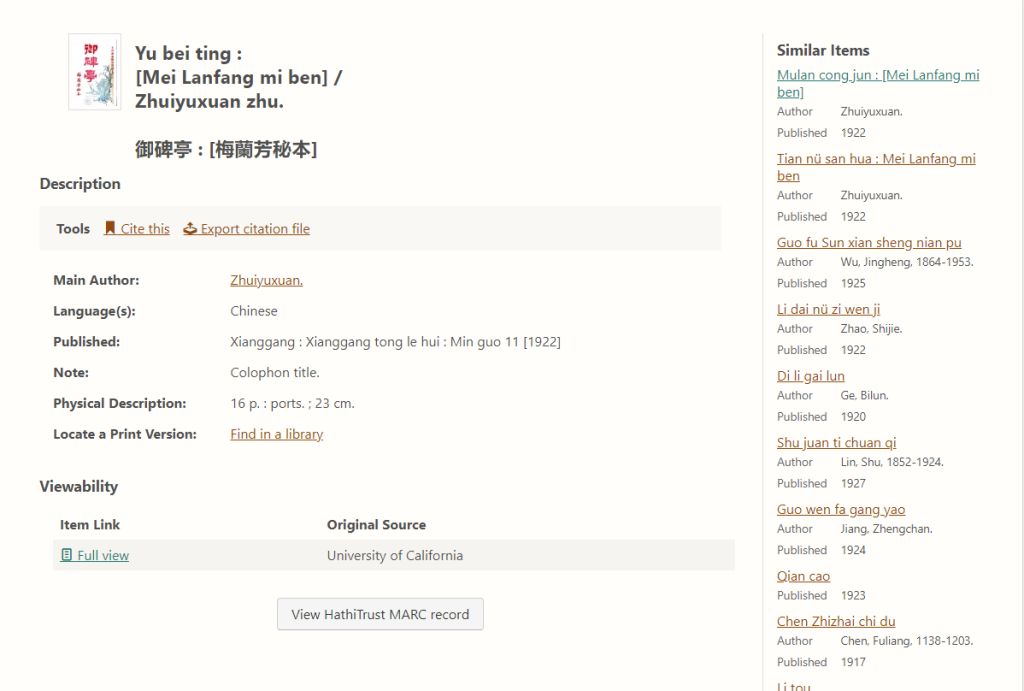Mulan
Before starting college, I had never learned anything related to Asian history in high school. Although, I did grow up with Disney’s Mulan and other Chinese legends like the Moon Goddess. I also watched The Guardian Brothers, which was based on another Chinese folktale similarly changed as the Western version of Mulan was created. I never realized that these stories were based on other stories from Chinese culture and not something they created based on their culture. This is why when I got to college, I really wanted to go into Asian Studies, and from my classes here, I feel I am finally putting the histories together little by little. From my Asian 235 class, we learned about how Star Wars was inspired by a Japanese movie. Then in my Asian 263 class, we learned about how translations and how these texts came together. This is interesting because I remember hearing about these philosophers when I was younger, and it shows that each country or culture really influences each other. This is why I think Translation Networks are very important to us because they can tell us the histories behind how things came to be today, but also what things were like during that time, what ideas they held, events that influenced literature, and so much more. I wanted to focus on this idea of how everything is connected, and there is a starting point or origin to every story and idea, and this is why I decided to focus on Mulan, as it is just one representation of a whole group and how its history is much more than just what Disney made it out to be.
My collection: https://babel.hathitrust.org/cgi/mb?a=listis&c=1329525894
My Collection focuses on different variations of the original Poem Ballad of Mulan from different time periods or across different cultures and languages (mostly only Chinese and English). The Ballad of Mulan doesn’t tell a full story and leaves out certain parts that are prominent in the US or other Chinese retellings of the story, which is what makes these variations of the story open for interpretation. This collection aims to find these discrepancies and the background regarding why it is the way it is by finding how these stories are telling these messages through how it is told.

This is the English translated poem of Mulan within a book of other translated Chinese poems, and I never knew that Mulan was based on a poem that has survived many years. I couldn’t find the original one on HathiTrust, but I did find this translation and what I thought was interesting about it was that it lacks lots of details that were mentioned in the Disney version. There were no mentions of what happened during the war or what happened after the war. There are many fill-in-the-blanks needed to be done, and there were many adaptations in China that I was not able to find and understand, but I do know it is slightly different for each one. I think it would be very fascinating to see all of these differences and similarities.

As it turns out, the other story that I originally thought was the same as my main source above is not the same as it turns out to be. Although they both include similar pictures (which is why I thought they were the same), I think that connections would be very cool to look into more if you had more knowledge on this subject.
In addition to the similar photos, there are also ads included in the books. I wonder why this is because in the US we do not include ads within our books, and it only contains the writing. This might be something else to look into and how texts can tell us about the people of the past for what they like and how the ad is targeting them. Overall, I wish I could’ve found English translations of the text of Mulan and discovered what made these separate distinctions between the stories. I did, however, find a source that did tell me a little bit about how each story had a focus based on the cultural elements of each time, such as a focus on filial piety and then more on being a strong woman. Something I learned from a classmate is that there is also an effect of literature on people, for example, how people were against the stories she found because the topic was taboo. In addition, too many other students showed me that it could be both ways: from culture impacting literature and literature being important to history. It shows that history, culture, and the people all influence each other whether we acknowledge it or not. This is what makes literature so fascinating to me because for every story, there is a past, and for every story, it makes an impact on the people. This is something that I got from Xiaoxi’s lightning talk on how some Chinese texts have traditional and simplified Chinese characters written in them; that really helped me to see how “relationships are expressed in language.”



You must be logged in to post a comment.